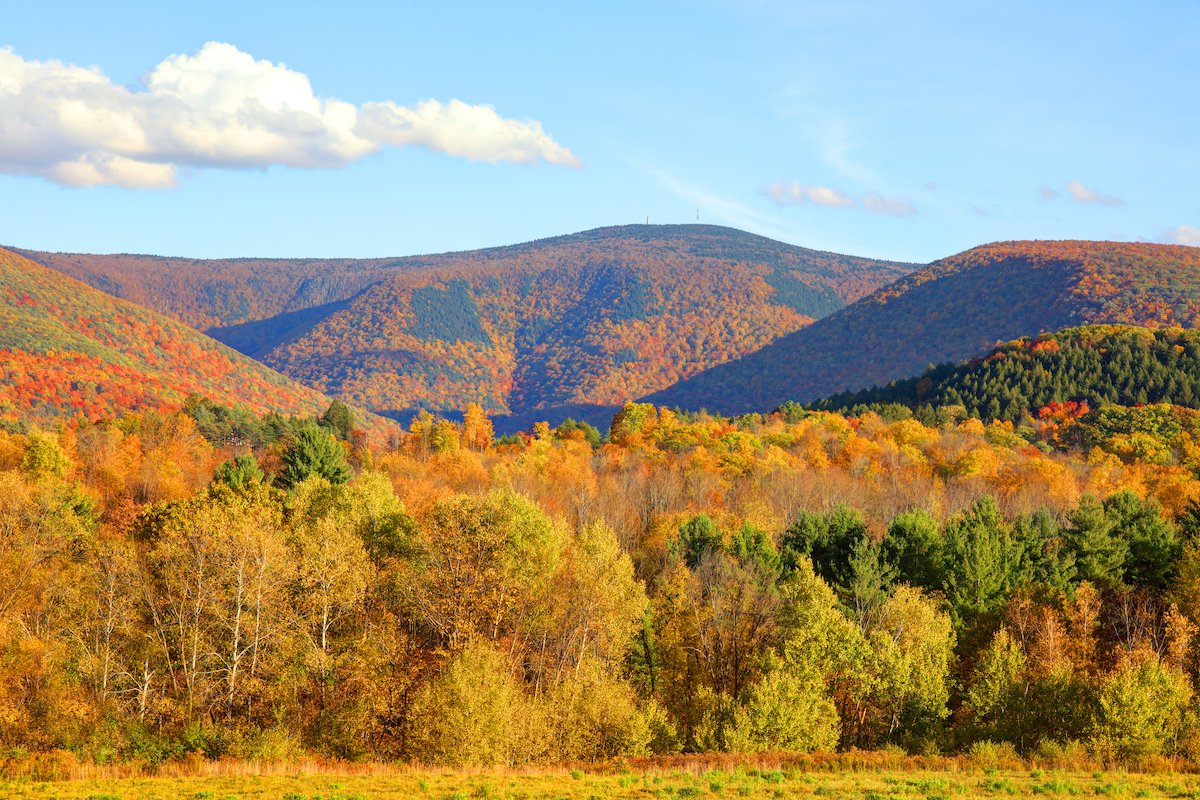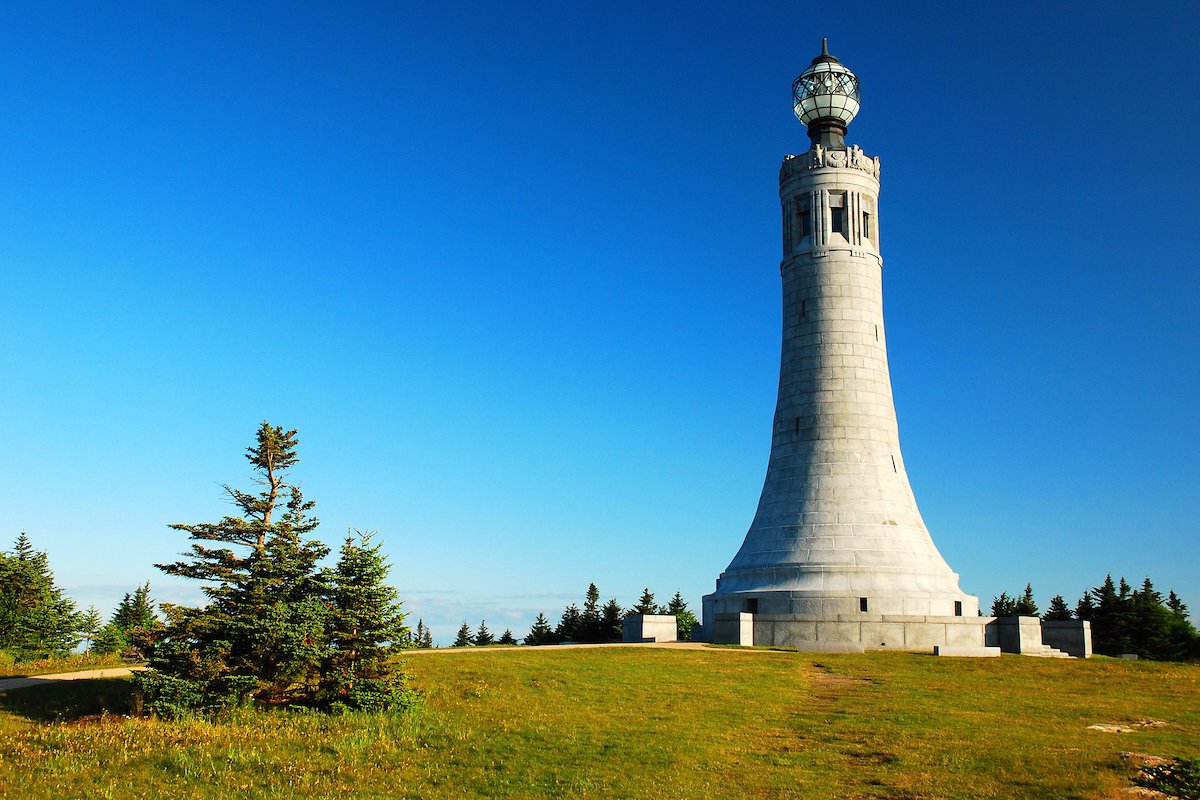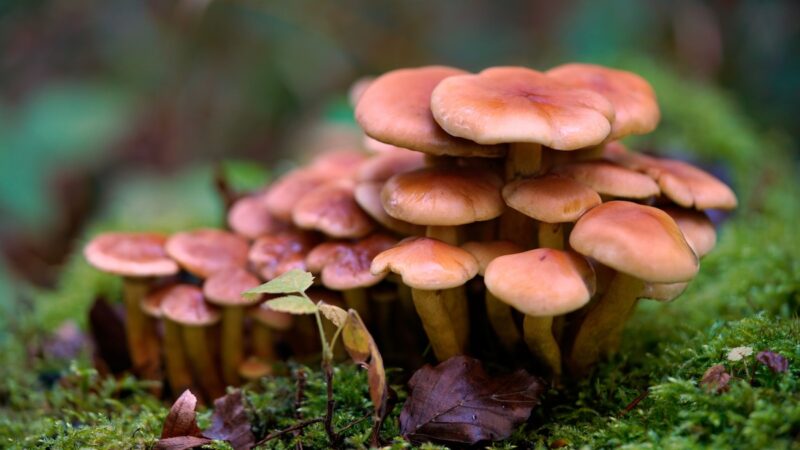A Traveler’s Guide to Mount Greylock
Mount Greylock is not only the high point of Massachusetts, it’s steeped in history of all kinds. Visitors can look up at the 92-foot-high granite beacon tower at the top and know that they’re standing at a point of interest for military, literary, nature conservation, and Native American history. There’s a huge confluence of stories running through this mountain, and it’s hard to imagine how they could all fold in together. Regardless, here they are. It’s accessible by car–in fact, the scenic byway leading to the top is a lovely drive.
There’s also plenty of hiking to be done around Greylock. It’s a great place to see autumn foliage, and it’s a notable area for birding as well. This peak is also a part of the world-famous Appalachian Trail — visitors can hop on the “AT” for a hike where they may run into some thru-hikers coming all the way north from Springer Mountain in Georgia. Greylock should be of special interest to nature lovers and history buffs living or traveling around New England.
The History of Mount Greylock
As I mentioned, Greylock has a history of all kinds to color its views of the surrounding countryside. Each facet of its background is something we could dive into endlessly, but unfortunately in this article, I can only brush the surface. Here are a few crash courses that may pique your interest:
The Beacon
Looking down on the town of Adams, Massachusetts, and beyond, Mount Greylock stands at 3,491 feet of elevation. A lit beacon at the top of the summit’s tower stands in remembrance of the state’s dead from World War 1 and other conflicts. It was dedicated on June 30, 1933, and withstands the brutal weather that New England peaks are subject to. There are observation windows available to those who climb its stairs from which to view the surrounding countryside. A dedication is inscribed over the tower’s entrance. It reads: “Erected by Massachusetts in grateful recognition of the loyalty and sacrifice of her sons and daughters in war.”
Greylock or Gray Lock or Wawánolewát?
You’ll learn, reading up on Greylock, that it was named after an 18th-century Waranoke Chief. Who was he, though? What paths did his life take? While it would be best to hear his story told by someone with relational knowledge, here is a brief biography that illuminates parts of his life.

His name apparently comes from a streak of hair that was prematurely gray. His now-common Abenaki name is thought to be “Wawánolewát,” or, “he who fools the others or puts someone off the track.” It describes how he operated in King Philip’s War, after which he traveled as a refugee to settle at “Schaghticoke (near the mouth of the Hoosic River) in Mahican country during 1676 and 1677.”
Written history has no records of Wawánolewát until 35 years later when he reappears. He led a historic raid against Northampton and achieved renown throughout Dummer’s War with clever, daring tactics. Years later, Wawánolewát remained a holdout in the midst of a peace treaty being brokered between the city of Boston and Canadian Abenakis. He may have harbored some deep anger at his displacement by the forces of colonization. While the circumstances of his death are unknown, there are possible records of his baptism and his descendants. Now his monument, Mount Greylock, sits on Mohican territories.
Walden and The White Whale
Herman Melville lived and wrote “Moby-Dick” in Pittsfield, Massachusetts. His desk looked out at Mount Greylock, and it is said to have inspired him. The mountain covered in snow seemed reminiscent of a breaching white whale and colored his thoughts throughout much of his writing life in the 1850s.
Henry David Thoreau has his own historical relationship with Greylock. He ascended the mountain one day in 1844, and it seems to have been a pivotal moment in his life. He was a struggling writer full of aspiration and had recently set fire to a large swath of forest near his family home in Concord. This was far before the memorial was built on Greylock’s summit, so he found only a meteorological tower there. Spending a night blanketed by wooden boards at the peak, he awoke surrounded by cloud and fog and saw some aspect of his future in it. It was a preface of sorts for his self-isolation at Walden. There was an annual commemorative walk led every year but one from 1994 to 2021, which in 2022 was replaced by a tour of the summit.
Paving the Path for Our State Parks
In the 19th century, deforestation was rampant in what is now the Mount Greylock State Reservation. The Greylock Park Association was formed in response to that ecological disaster. This was back in 1895, and it led to the surrounding 400 acres becoming Massachusetts’ first state reservation. While those original founders tried to make some profit off of their preservation efforts, that eventually failed. They donated it to the public. Cut to the present day, and the reservation is now 12,500 acres across. As Massachusetts’ first state reservation, this process modeled what would eventually become our State Park system.
Hike, Drive, and Enjoy
The best way to drink in the Mount Greylock Scenic Byway is to start down in Lanesborough. Heading north on US-7, take the slight right onto N Main St out of town, another right onto Greylock Road before you’ve gone a mile, and then a final left onto Rockwell. From there, you’ll cruise up to Mount Greylock, taking in the New England foliage along the way. After you spend some time at the summit, continue northward to North Adams to take in some art and culture. If you’re not done driving, just start heading east along another historical route — the Mohawk Trail Scenic Byway.

If the weather holds, there are a ton of great hikes throughout the Mount Greylock State Reservation. Most of them lead to the summit, though the Bellows Pipe Trail seems to be the most popular. Keep in mind, getting to the summit is not easy just because the mountain is well-traveled. There’s an entire network of trails to explore — choose whichever fits your ability best.
It’s worth noting that the reservation is a notable birding area, too. There are several species that nest only on Mount Greylock and not often in other parts of Massachusetts, including the Olive-sided Flycatcher, Red-breasted Nuthatch, Brown Creeper, Winter Wren, Swainson’s Thrush, and Golden-crowned Kinglet. If you want to snag a few “lifers” on your trip, here’s a birding-focused list that will take you further than just the peak.
If you’ve always fantasized about hiking the Appalachian Trail, you can plan a summit of Greylock into a backpacking trip along the AT. Starting down in Dalton and hiking up to Route 9/Woodford Hollow would be a 42-mile stretch that takes you right through the Mount Greylock area and over the mountain. It could make for a great first-section hike. Be careful, though! You may get hooked, quit your job, and become a thru-hiker.
Climbing to Massachusetts’ highest point will allow you to walk a few miles in the footsteps of people like Herman Melville and Henry David Thoreau. Who’s to say what sort of stories or philosophies you’ll develop as you go? Birdsong and New England autumns and the rich forests of the Northeast do inspire wonder, and great things come from that feeling.
Greylock seems like the perfect setting for a family trip — half the family, those who prefer comfort, may drive to the top. Meanwhile, the younger ones who have been sitting still all day and need to get some energy out should be sent to hike. Tell them it’s a history lesson. No matter how you get there, though, looking out 70 to 90 miles from the top of that memorial beacon is a reward in and of itself. Greylock may be etched in history, but there’s nothing wrong with simply taking in the beautiful sights before you.
Source: https://outdoors.com/a-travelers-guide-to-mount-greylock/







